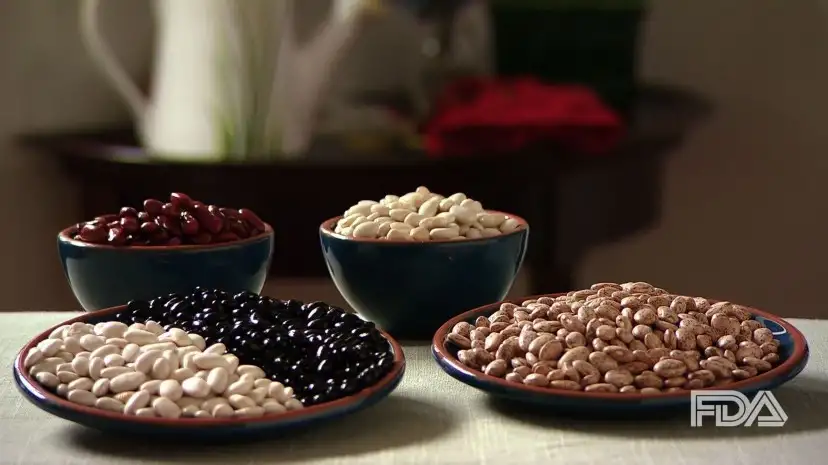In today’s health-conscious world, many of us strive to incorporate nutrient-dense superfoods into our diets. However, even foods that are generally considered healthy can sometimes harbor hidden toxins or cause adverse effects when consumed in excess or under certain conditions. In this comprehensive guide, we explore nine popular healthy foods that might be toxic to your body. From kale to mango, we dive into the science behind potential risks and offer guidance on how to enjoy these foods safely.
Healthy Foods That Are Bad For You
Kale: The Green Giant with a Hidden Side

Kale is celebrated for its impressive nutrient profile—rich in vitamins A, C, and K, antioxidants, and fiber. Yet, kale also contains goitrogens, naturally occurring substances that can interfere with thyroid function if consumed in very large quantities. While most people can enjoy kale without worry, those with pre-existing thyroid conditions or iodine deficiencies might need to moderate their intake.
Moreover, conventional kale is sometimes sprayed with pesticides, which can accumulate on the leaves. Choosing organic kale and varying your greens can help minimize these risks. For a deeper dive into the potential downsides of kale consumption, check out insights on Healthline.
Rice Cakes: Light Snacks with Heavy Metal Concerns

Rice cakes are often marketed as a low-calorie, gluten-free snack, making them popular among dieters and health enthusiasts. However, rice is known to be a hyper-accumulator of arsenic—a naturally occurring element that can become toxic over time. Studies have shown that even processed rice products, like rice cakes, may contain traces of arsenic, which, if consumed regularly, could pose long-term health risks.
For those who enjoy rice cakes, moderation is key, and pairing them with nutrient-dense toppings can help balance their otherwise low nutritional value. To learn more about arsenic in rice and rice-based products, visit research summaries available on Medical News Today.
Fresh Tuna: Omega-3s or Mercury Overload?
Fresh tuna is prized for its high levels of protein and omega-3 fatty acids, essential for heart and brain health. However, tuna is also notorious for accumulating mercury—a heavy metal that can be detrimental to the nervous system, particularly in pregnant women and young children. The risk of mercury poisoning increases with the frequency and portion size of tuna consumed.
To minimize mercury exposure, experts advise varying your seafood choices and opting for smaller, lower-mercury fish like salmon or sardines. For more detailed guidance on mercury in seafood, the U.S. Food and Drug Administration (FDA) provides comprehensive resources.
Cinnamon: A Spice That Can Stress Your Liver

Cinnamon, especially the common Cassia variety, is a beloved spice for its warm flavor and purported health benefits, such as improved blood sugar control. However, Cassia cinnamon contains high levels of coumarin, a natural compound that can cause liver damage if consumed in large amounts. Excessive coumarin intake has been linked to liver toxicity and may also affect blood clotting.
For those who use cinnamon regularly, it might be wise to opt for Ceylon cinnamon, which contains lower levels of coumarin. Further reading on the risks of cinnamon and coumarin can be found on WebMD.
Nutmeg: A Pinch Too Much Can Be Poisonous

Nutmeg is often used in small quantities to add warmth and complexity to both sweet and savory dishes. Despite its culinary versatility, nutmeg contains myristicin and elemicin—compounds that can have psychoactive effects and even become toxic when ingested in large doses. High consumption of nutmeg can lead to symptoms such as nausea, hallucinations, and even seizures.
It’s essential to use nutmeg sparingly in recipes to avoid these adverse effects. For more detailed information on nutmeg toxicity, reputable sources like Healthline offer evidence-based advice.
Couscous: More Than Just a Side Dish
Couscous, a staple in many Mediterranean and Middle Eastern diets, is often celebrated for its ease of preparation and nutrient content. However, couscous is typically made from semolina wheat, which might not be ideal for individuals with gluten sensitivities or celiac disease. Additionally, couscous can have a high glycemic index, potentially leading to blood sugar spikes in some individuals.
While couscous can be part of a balanced diet, those with specific dietary restrictions should consider alternatives like quinoa or buckwheat. For additional context on the impact of gluten and glycemic index on health, explore resources available on Harvard Health Publishing.
Smoked Salmon: A Delicacy with Carcinogenic Risks

Smoked salmon is often touted as a heart-healthy food rich in omega-3 fatty acids. However, the smoking process can introduce harmful chemicals into the salmon, including polycyclic aromatic hydrocarbons (PAHs) and nitrites. These compounds have been linked to an increased risk of cancer when consumed regularly over a long period.
Choosing high-quality smoked salmon and limiting its intake can help mitigate these risks. Additionally, some experts recommend opting for alternative methods of preparing salmon, such as baking or grilling, to preserve its nutritional benefits without the added carcinogens. For more details on smoked foods and cancer risk, refer to studies discussed on PubMed.
Kombucha – A Probiotic Drink with Hidden Dangers

Kombucha is a fermented tea packed with probiotics, but drinking too much can have adverse effects.
- Acidic Content: Its high acidity can lead to dental erosion and stomach discomfort.
- Alcohol and Caffeine: Some kombucha brands contain small amounts of alcohol and caffeine, which may not be suitable for everyone.
How to Consume Safely: Drink in moderation and choose brands with low sugar content.
External Reference: Healthline
Mango – A Delicious Fruit That Can Trigger Allergies
Mangoes are packed with vitamins and antioxidants but may cause reactions in some individuals.
- Contains Urushiol: This chemical, also found in poison ivy, can cause skin rashes or allergic reactions.
- High Sugar Content: Overeating mangoes can lead to blood sugar spikes, making them a concern for diabetics.
How to Consume Safely: Peel the skin before eating to reduce exposure to urushiol and consume in moderation.
External Reference: American Academy of Allergy, Asthma & Immunology (AAAAI)
Final Thoughts
While these nine foods offer numerous health benefits, consuming them in excess or without proper preparation can lead to unintended health risks. Moderation and awareness of potential toxins are key to maintaining a healthy and balanced diet.
By understanding these hidden dangers, you can make informed dietary choices and enjoy the benefits of these foods while minimizing risks.
Would you like more health insights? Stay tuned for more expert-backed nutrition tips!
Preview photo credit leviathan_stud / reddit









